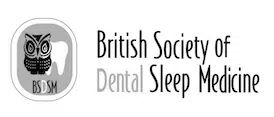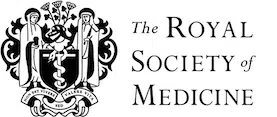Snoring is often dismissed as a mere annoyance – something that disrupts sleep and triggers the occasional elbow nudge in the night. But growing evidence suggests it may be more than just a noisy habit. In fact, snoring and high blood pressure may be closely linked, raising concern among medical professionals and patients alike.
Let’s explore the complex relationship between snoring and high blood pressure, and answer the question ‘Can high blood pressure cause snoring?’ Expert insight and treatment options from renowned UK sleep specialist Dr. Aditi Desai will be offered.
Understanding Snoring: What Really Happens?
Snoring occurs when the flow of air through the mouth and nose is partially blocked during sleep, causing the surrounding tissues to vibrate. This vibration results in the characteristic sound we associate with snoring. It can happen for various reasons, such as:
- Nasal congestion
- Sleep position (especially lying on the back)
- Excess weight or neck circumference
- Enlarged tonsils or soft palate
- Use of sedatives or alcohol
While occasional snoring may be harmless, habitual snoring could be a sign of obstructive sleep apnoea (OSA), a condition that can lead to serious health complications, especially high blood pressure.
Snoring and High Blood Pressure: The Hidden Connection
Numerous studies have found a significant relationship between snoring and high blood pressure. While the exact mechanisms are still being explored, here’s what is currently understood:
Oxygen Deprivation During Sleep
Loud, chronic snoring often results from obstructed airflow. These interruptions can cause the body to momentarily stop breathing, reducing oxygen levels. In response, the brain triggers a stress reaction, releasing hormones like adrenaline that elevate blood pressure.
Sleep Fragmentation
When breathing is disturbed by snoring or apnoeic episodes, the body fails to reach deep, restorative stages of sleep. This sleep fragmentation increases sympathetic nervous system activity, another contributor to high blood pressure.
Vascular Inflammation
Poor sleep quality and intermittent hypoxia from snoring can lead to systemic inflammation, damaging the inner lining of blood vessels and contributing to hypertension over time.
So, is the relationship one-way? Or can high blood pressure cause snoring as well?
Can High Blood Pressure Cause Snoring?
It’s a question many patients ask: can high blood pressure cause snoring, or is it just the other way around?
According to Dr. Aditi Desai, a distinguished dental sleep medicine expert and President of the British Society of Dental Sleep Medicine, the answer is nuanced.
“While snoring and high blood pressure are closely intertwined, high blood pressure doesn’t directly ‘cause’ snoring in a mechanical sense,” explains Dr. Desai. “However, the physiological changes associated with chronic hypertension – like vascular stiffness, poor circulation, or fluid retention – can indirectly contribute to airway obstruction and worsen snoring patterns.”
In short, the relationship is bidirectional. Snoring can lead to high blood pressure, and long-standing hypertension can aggravate breathing issues during sleep, creating a self-perpetuating cycle.
Risk Factors: When Snoring and High Blood Pressure Coincide
When a person exhibits both snoring and high blood pressure, it’s essential to look at overlapping risk factors that may be fueling both conditions. These include:
- Obesity: Excess body weight increases the risk of both OSA and hypertension.
- Age: Both snoring and hypertension become more common with age.
- Gender: Men are more likely to snore and have high blood pressure, although post-menopausal women catch up quickly.
- Lifestyle Factors: Poor diet, alcohol consumption, lack of exercise, and smoking contribute to both.
Dr. Desai emphasizes that “identifying these shared risk factors early is crucial for breaking the link between snoring and high blood pressure.”
 Expert Advice by Dr. Aditi Desai
Expert Advice by Dr. Aditi Desai
Dr. Aditi Desai is one of the UK’s leading voices in dental sleep medicine and sleep-disordered breathing. Her multidisciplinary approach combines dental expertise, airway analysis, and collaboration with sleep physicians to deliver lasting, non-invasive solutions.
Below is a detailed look at Dr. Desai’s clinical approach for those suffering from snoring and high blood pressure.
-
Comprehensive Sleep Assessment
Dr. Desai starts with a detailed clinical evaluation that includes:
- A thorough sleep and medical history
- Snoring severity analysis using validated questionnaires
- In-home or lab-based sleep studies (if obstructive sleep apnoea is suspected)
- Collaboration with GPs and cardiologists to assess high blood pressure management
She explains, “Understanding the root cause of snoring is the first step. Without proper diagnosis, it’s easy to treat symptoms while missing the underlying issue.”
-
Airway Imaging and Evaluation
Advanced tools such as 3D airway imaging, cephalometric analysis, or nasoendoscopy (with ENT collaboration) help Dr. Desai pinpoint physical obstructions causing snoring. This precise anatomical understanding allows for more tailored treatment plans.
-
Custom Oral Appliance Therapy
One of Dr. Desai’s specialties is the use of Mandibular Advancement Devices (MADs) – custom-fitted oral appliances that gently shift the lower jaw forward to keep the airway open during sleep.
These devices are particularly beneficial for patients with snoring and high blood pressure who want to avoid CPAP machines. MADs are:
- Comfortable and discreet
- Easy to travel with
- Highly effective for mild to moderate obstructive sleep apnoea
- A valuable alternative when CPAP compliance is low
-
Lifestyle and Positional Therapy
Dr. Desai believes that medical devices work best when combined with lifestyle changes. She provides coaching on:
- Weight management and nutritional guidance
- Alcohol moderation
- Proper sleep positioning (such as side-sleeping)
- Nasal hygiene and decongestion techniques
For patients with snoring high blood pressure, these non-pharmacological interventions can significantly improve outcomes and reduce cardiovascular risks.
-
Ongoing Monitoring and Blood Pressure Tracking
Dr. Desai closely monitors her patients’ progress using sleep apps, repeat sleep studies, and regular follow-ups. She also collaborates with primary care physicians to track changes in blood pressure readings over time, particularly when snoring and high blood pressure coexist.
This ongoing management helps ensure that both the symptom (snoring) and the consequence (high blood pressure) are effectively controlled.
Why You Shouldn’t Ignore Snoring If You Have High Blood Pressure
The implications of untreated snoring for people with high blood pressure are significant. Chronic poor-quality sleep and intermittent oxygen loss can increase the risk of:
- Heart attacks
- Stroke
- Atrial fibrillation
- Cognitive decline
- Kidney disease
Dr. Desai warns, “Many people assume snoring is harmless or simply a nuisance to their partner, but in the context of snoring and high blood pressure, it can be a silent threat. If you’re waking tired, snoring loudly, or gasping during sleep – and you have hypertension – it’s time to take action.”
When to Seek Help
You should consult a specialist like Dr. Aditi Desai if:
- Your snoring is loud and frequent
- You wake up gasping or choking
- You have been diagnosed with high blood pressure
- You feel constantly fatigued despite a full night’s sleep
- Your partner notices pauses in your breathing at night
Early intervention could not only improve your sleep but also reduce your risk of life-threatening cardiovascular events.
Breaking the Cycle
The connection between snoring and high blood pressure is well-established and growing in clinical relevance. Whether snoring is the cause, a symptom, or a contributor to hypertension, addressing it should be a priority.
Dr. Aditi Desai’s expert, multidisciplinary approach offers safe, effective, and personalized care. Through detailed diagnostics, cutting-edge oral appliance therapy, and holistic lifestyle coaching, she helps patients break the dangerous cycle of snoring high blood pressure.
So, can high blood pressure cause snoring? Indirectly, yes. And can snoring worsen high blood pressure? Absolutely. The good news is, with expert care and timely action, both can be managed, and lives can be dramatically improved.








One Comment